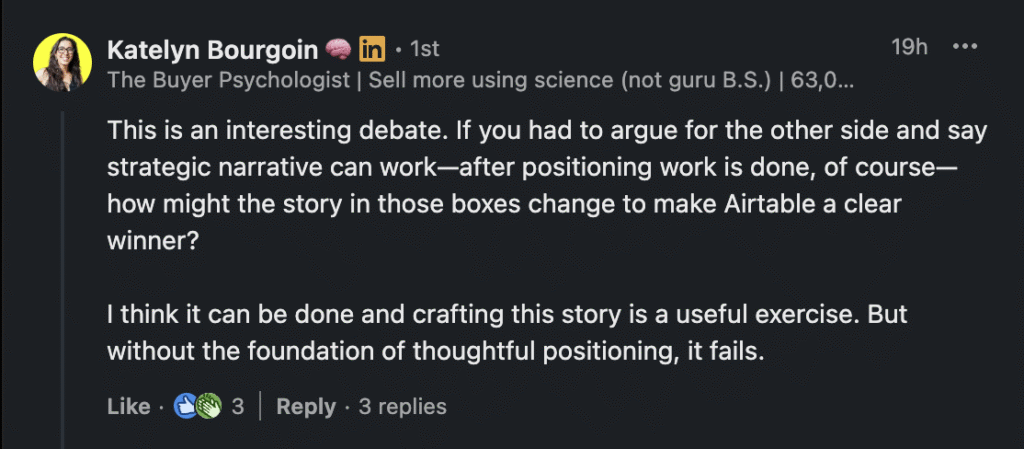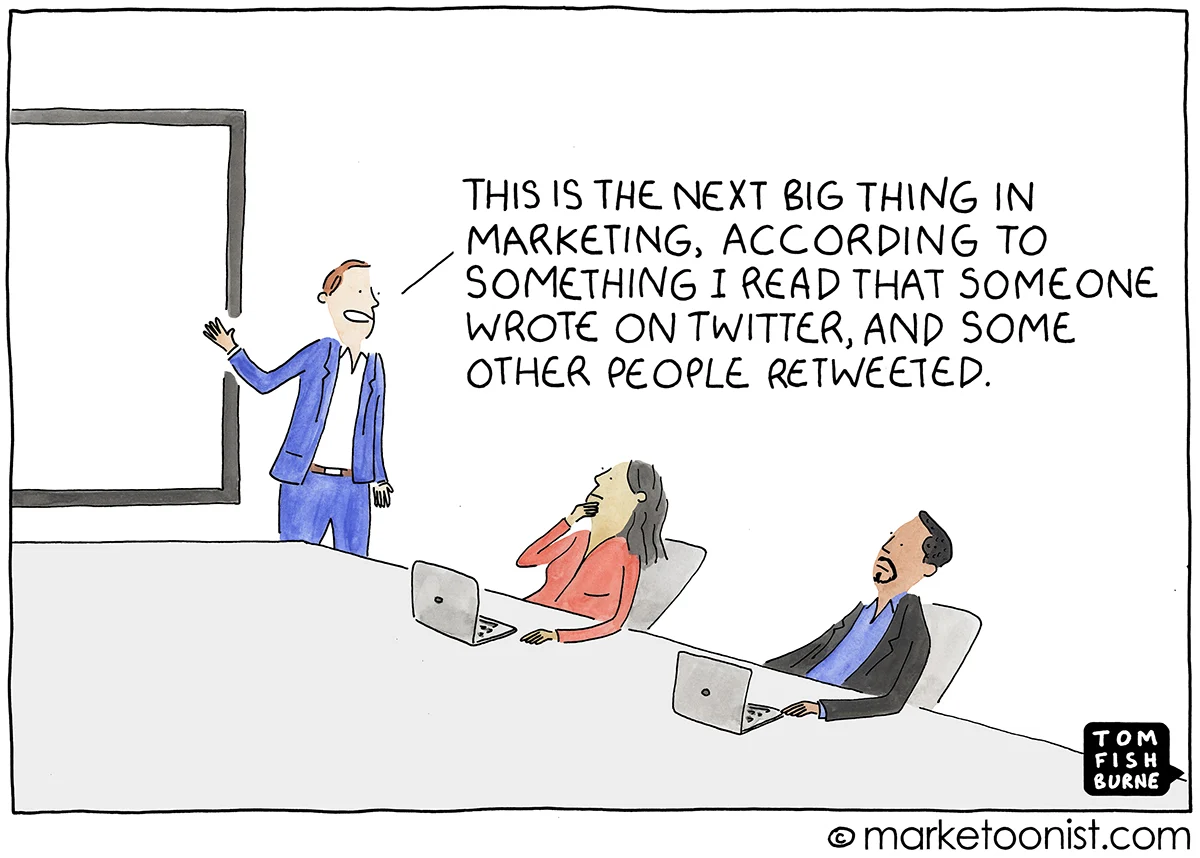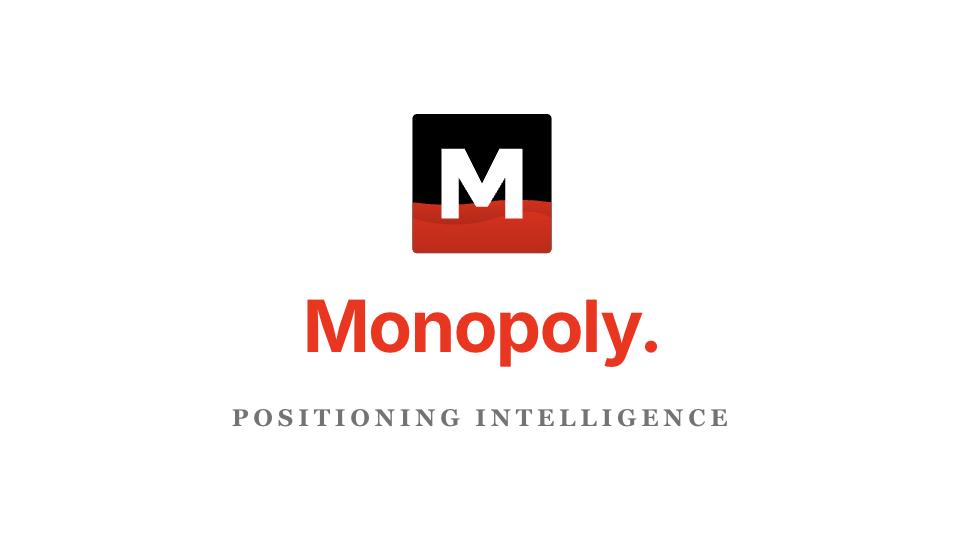Let’s break down what’s really happening here, because Sara and Fletch have fundamentally misunderstood positioning while claiming expertise in it.
What Sara Thinks She’s Describing
Sara believes she’s making a sophisticated critique of strategic narrative. She thinks she’s being practical and buyer-focused by saying companies need to explain “what you are” and “what your product does” instead of telling stories about change.
She thinks positioning = clear product description + differentiation.
What Sara Is Actually Describing
She’s describing messaging and marketing, not positioning. Every single thing she advocates for (explaining what you do, what problem you solve, how you’re different) is tactical communication, not strategic positioning.
She’s confused the map for the territory. She thinks the words you use to describe yourself ARE the position, when actually the position is the mental territory you own.
The Reality She’s Missing
Look at her examples of “generic narratives”:
- “Data is the new oil”
- “The way we work is broken”
These aren’t failed strategic narratives. They’re not even strategic narratives at all. They’re generic observations that no one owns.
A real strategic narrative would be like Tesla’s: “Transportation must be sustainable, and we’re making it inevitable.” That’s not generic, it’s specifically tied to the mental territory Tesla owns (the future of transportation).
What Makes This Worse
Sara’s “solution” (focus on features, benefits, and differentiation) is precisely the trap that keeps companies in commodity hell. When you define yourself by what you do rather than what you mean, you’re forever stuck competing on features.
Think about it:
- Volvo doesn’t win by explaining their safety features better
- Red Bull doesn’t succeed by describing their ingredients clearer
- Supreme doesn’t thrive by detailing their manufacturing process
They win because they own concepts in minds.
The Katelyn Comment Reveals Everything

When Katelyn says strategic narratives need to start with “big, undeniable change in the world” and “those are just not that unique,” she’s revealing she doesn’t understand the framework at all.
The change isn’t supposed to be unique. Your position as the answer to that change is what’s unique. The narrative creates context for why your mental territory matters.
Sara’s Fundamental Confusion
Her P.P.S. is telling: “Andy deserves credit… his framework works, but only for CEOs.”
No. It works for anyone who makes identity-based decisions (which is everyone). The difference is that CEOs might have patience for poorly executed narratives, while users don’t. That’s not a framework problem; it’s an execution problem.
What She’s Actually Trying to Say (But Can’t)
Sara is noticing a real problem: companies using generic, borrowed narratives without owning unique mental territory. But she’s misdiagnosing the issue.
The problem isn’t strategic narrative. The problem is:
- No actual position (no mental territory owned)
- Generic narrative (borrowed observations rather than unique POV)
- No integration (narrative doesn’t connect to what you uniquely own)
my advice & request
Here’s what Sara and Fletch need to understand:
Positioning is not about explaining yourself better. It’s about owning something in the mind.
When you own mental territory (like Volvo owns safety), the strategic narrative explains why that territory matters now more than ever. The narrative doesn’t replace the position — it contextualizes and reinforces it.
Sara’s seeing companies with no position trying to use narrative as a substitute. That doesn’t work. But concluding “narrative doesn’t work” is like watching someone use a hammer wrong and concluding hammers don’t work.
The Ultimate Irony
Fletch positions (well, at least they believes so) itself as positioning experts while demonstrating they don’t understand positioning at all. They’re actually messaging experts who’ve confused tactical execution with strategic foundation.
This is like a interior decorator claiming to be an architect because they both work on buildings.
The tragedy? Companies following Fletch’s advice will get clearer messaging but remain positionally weak — competing on features in commodity markets, wondering why their “positioning” isn’t creating pricing power or customer loyalty.
The real test: Can you own a concept so powerfully that competitors are reduced to saying “us too”? If not, you don’t have positioning, you just have messaging.




Leave a Reply
You must be logged in to post a comment.